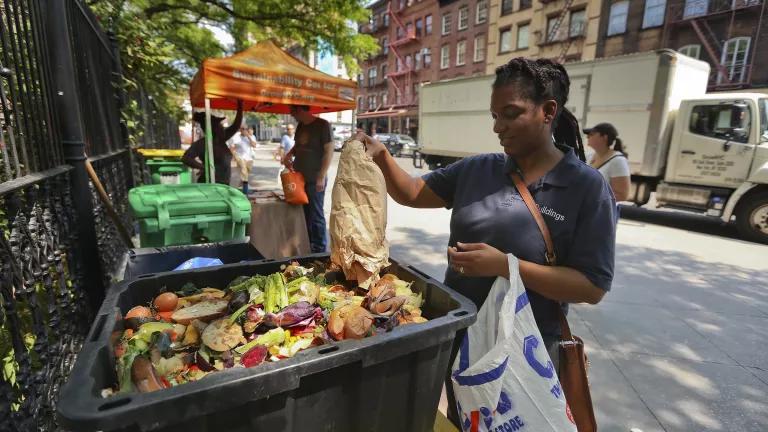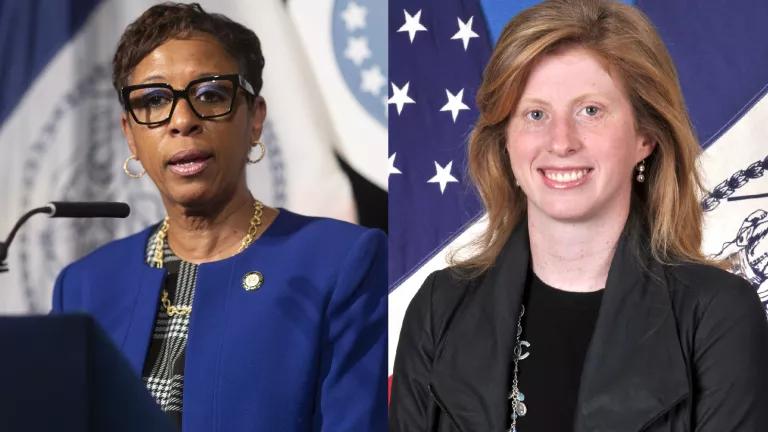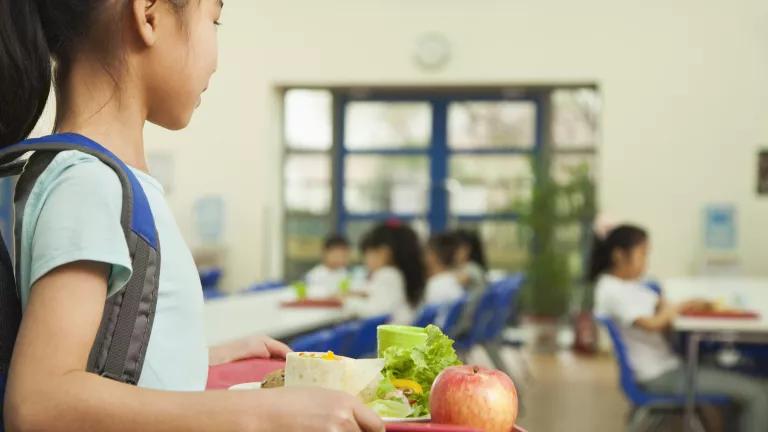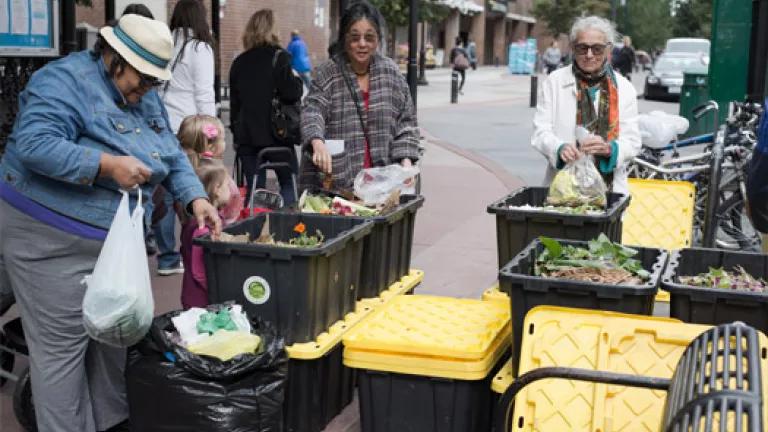How to Testify in Support of Composting in New York City
Here’s how you can stand up for community composting and make your voice heard at Friday’s New York City Council hearing.

Sabrina Deshong adds food scraps to a compost collection point operated by GrowNYC.
Since the COVID-19 pandemic hit, everything has moved online—even New York City Council hearings! For many of us, that means it’s easier to make our voices heard in these formal settings, which would normally take place in downtown Manhattan.
On Friday, December 18 at 11 a.m., the Committee on Sanitation and Solid Waste Management and the Committee on Parks and Recreation are holding a hearing about the future of two critical composting organizations—Lower East Side Ecology Center and Big Reuse—as they face possible eviction by the New York City Parks Department.
With funding for curbside compost collection and community composting drop-off services being drastically cut in the city budget, we can’t afford even more composting services getting axed.
Who Can Testify
Any member of the public is allowed to testify. We encourage New Yorkers to show up in support of community composting and make their voices heard!
How to Testify
First, sign up to testify in support of community composting at the council hearing through this NRDC action page. There are two ways to testify on this day: You can listen in and speak through a web platform or you can call in by phone. You’ll be called on to speak when it’s your turn to testify.
We recommend that you prepare your testimony ahead of time by writing it out (even just an outline) and practicing reading it while you time yourself. It’s best to keep your testimony to less than three minutes—short and to the point!
Tips for Your Testimony
Start with the personal: Do you compost? Have you been finding it hard to compost since the pandemic started? Do you use one of these two composting organizations’ services to compost your organics?
Next, outline why composting is important to you and for the environment. You can read more about composting and its benefits in NRDC’s guide.
And don’t forget: Composting is an environmental justice issue too. When food waste is not composted, it is often sent to incinerators located primarily in low-income communities and communities of color and burned with trash and fossil fuels. This releases particulates and toxic chemicals into local communities.
Finally, sustainably disposing of organics is critical to achieving New York City’s ambitious climate and zero waste goals. Dumping food waste into landfills or incinerators instead of composting them adds to air pollution, accelerates the climate crisis, and will mean that the people who provide these critical composting services will lose their jobs.
NRDC Is Here to Support You
In the lead-up to and during the hearing, our staff will be available via SMS to answer your questions and cheer on your testimony! Just sign up to testify through the NRDC action page and we’ll be in touch soon.




